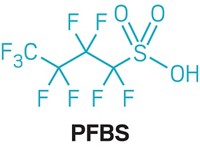Advertisement
Grab your lab coat. Let's get started
Welcome!
Welcome!
Create an account below to get 6 C&EN articles per month, receive newsletters and more - all free.
It seems this is your first time logging in online. Please enter the following information to continue.
As an ACS member you automatically get access to this site. All we need is few more details to create your reading experience.
Not you? Sign in with a different account.
Not you? Sign in with a different account.
ERROR 1
ERROR 1
ERROR 2
ERROR 2
ERROR 2
ERROR 2
ERROR 2
Password and Confirm password must match.
If you have an ACS member number, please enter it here so we can link this account to your membership. (optional)
ERROR 2
ACS values your privacy. By submitting your information, you are gaining access to C&EN and subscribing to our weekly newsletter. We use the information you provide to make your reading experience better, and we will never sell your data to third party members.
Persistent Pollutants
EPA seeks to boost reporting on PFAS releases
Change would increase right-to-know reports on these persistent chemicals
by Cheryl Hogue
August 4, 2022
| A version of this story appeared in
Volume 100, Issue 27
More US companies would have to file reports on their releases of per- and polyfluoroalkyl substances (PFAS) to the environment if the Environmental Protection Agency finalizes its plans.
Later this year, the EPA will propose eliminating an option for companies to skip annual Toxics Release Inventory (TRI) reporting of PFAS, the agency announced July 28. Many companies have used the option to avoid reporting.
More than 175 PFAS, many of which are toxic at low concentrations, are on the TRI. Facilities that manufacture, process, or use at least 45 kg a year of any of these chemicals must file TRI reports.
But the EPA has received few reports on PFAS since Congress added these compounds to the TRI in 2019. Preliminary TRI data for 2021 include reports from 45 facilities on a total of 46 PFAS, the EPA says. For 2020, only 39 facilities filed collectively on 43 PFAS.
Some companies had filed information under the Toxic Substances Control Act saying they made or imported PFAS listed on the TRI. But they didn’t file TRI reports on those substances, the EPA says.
The agency followed up with them and found these firms had used what is called the de minimisexemption. This allows facilities to forgo a release report if a TRI substance is part of a mixture and is present in concentration of no more than 1%.
“Because PFAS are used at low concentrations in many products, the elimination of the de minimis exemption would result in a more complete picture of the releases,” the EPA says.



Join the conversation
Contact the reporter
Submit a Letter to the Editor for publication
Engage with us on Twitter